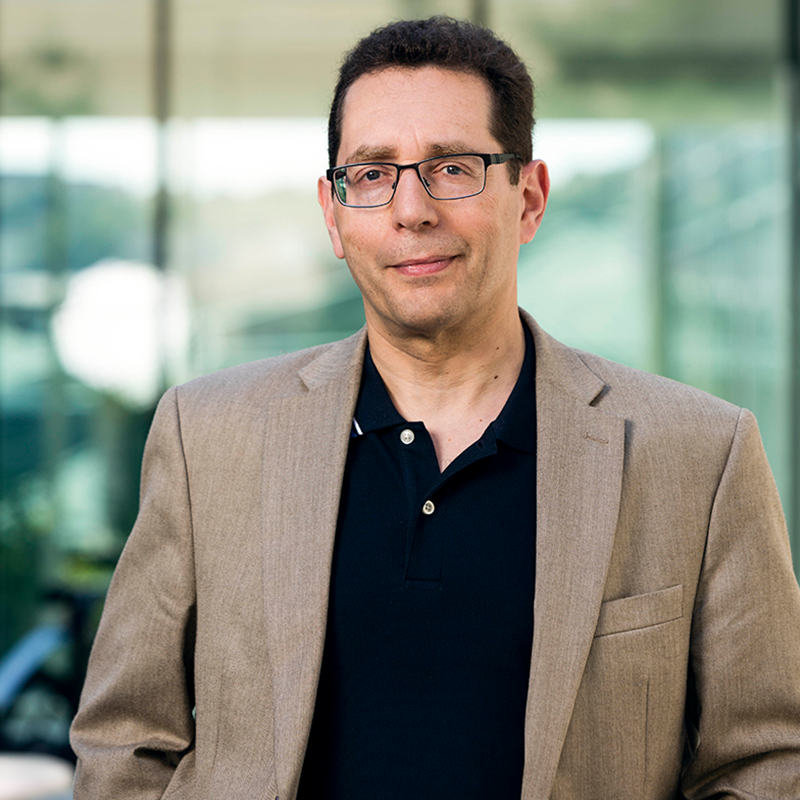Privacy by Design, Leaders by Nature
CMU's Privacy Engineering Program: Cultivating the Next Generation of Digital Defenders
In a world where personal data is continuously harvested, privacy is no longer just a consideration—it’s a necessity. Each day brings new headlines about data breaches, security failures, and growing distrust in the digital landscape. As the global economy increasingly runs on data, protecting individual privacy has never been more critical. And at the heart of this challenge is the privacy engineer: a bold, new breed of professionals who are blending technical expertise, legal insight, and ethical responsibility to safeguard personal privacy in our hyperconnected world.
Carnegie Mellon University’s Privacy Engineering master’s program stands at the forefront of this revolution. It’s more than just an education—it’s a transformative journey that prepares future leaders to take on one of the most critical challenges of the 21st century.
The "Third Path": A Holistic Approach to Privacy Engineering
Traditional approaches to privacy typically fall into two categories: purely technical or law and policy-driven. On the one hand, there is a focus on privacy-enhancing technologies (PETs), which often overlook social and legal contexts. On the other hand, there are policy-centered solutions, which, while essential, can be slow to keep pace with technological innovation.
CMU’s Privacy Engineering program offers a "third path" that bridges these two worlds by recognizing that effective privacy solutions require more than just technology or regulation—they demand an integrated, interdisciplinary approach.
Dr. Lorrie Cranor, co-director of the program and a pioneer in privacy and security research, explains it best: “Most privacy problems cannot be solved by technology alone or by law alone. We need experts who can blend both fields, creating solutions that protect individuals while supporting technological progress.”
The "third path" integrates technical rigor with policy expertise and ethical decision-making, enabling students to approach privacy from multiple dimensions. Here’s what sets this unique approach apart:
- Interdisciplinary Curriculum: Students dive into a curriculum that spans computer science, law, policy, usability, and statistics, giving them the tools to address privacy challenges holistically.
- Privacy by Design (PbD): Central to CMU’s approach, PbD ensures that privacy considerations are built into products from the start, not retrofitted as an afterthought. Students learn to embed privacy into the full lifecycle of technology development, ensuring that solutions are not only innovative but privacy-preserving.
- Real-World Application: CMU emphasizes practical experience. Students work on capstone projects that tackle industry challenges in areas like healthcare, finance, and social media, applying the principles of the "third path" in real-world settings where legal, technical, and ethical considerations must converge.
- Ethical Awareness: Privacy engineers trained at CMU are not just technical specialists; they are advocates for responsible innovation. The program instills a deep ethical awareness, ensuring that graduates understand the societal implications of their work and prioritize user privacy.
As part of this holistic approach, the program prepares students for a future where Artificial Intelligence and Machine Learning play an increasingly important role in the development of new products and services. This includes covering topics that range from AI Governance, Differential Privacy, Fairness, and more.
Dr. Norman Sadeh, co-founder and co-director of the program and a pioneer in Artificial Intelligence, cybersecurity, and privacy notes: “Increasingly enterprises are turning to privacy engineers to help them set up their AI governance practices. By teaching our students how AI impacts privacy and security and how to effectively mitigate the risks, we also prepare them to play an important role in addressing these important issues.”
“Most privacy problems cannot be solved by technology alone or by law alone. We need experts who can blend both fields, creating solutions that protect individuals while supporting technological progress.”
A Program Designed for Impact
For alumni like Dhanuja Shaji, the program was life-changing. A former math teacher who transitioned into the world of privacy engineering, Dhanuja found the perfect balance between her desire to work on real-world issues and her technical background. “What I loved about the program,” she explains, “is that it’s not just about coding 24/7 or about law. It’s about being at the intersection of both and shaping what privacy means in a world that’s constantly evolving.”
Since graduating, Dhanuja has taken on a critical role at Snap Inc., where she leads privacy by design efforts and helped develop an automated privacy review tool. "Everything I learned at CMU," she says, "directly applies to what I do now—whether it's working on GDPR compliance or building privacy-first features for millions of users. This program prepares you for that."
James Arps, another graduate, now works at Google as a privacy engineer, helping to develop privacy solutions for their internal platforms and Google Cloud. For James, the program gave him a mindset that goes beyond technical knowledge. “The curriculum directly applies to what I do today,” he explains. “But more importantly, CMU immerses you in an environment where privacy is more than a subject—it’s a framework for how you approach every problem. That level of immersion is what sets this program apart.”
Real-World Experience from Day One
At CMU, students don’t just learn—they do. From day one, you will be solving real-world privacy challenges that have immediate industry applications. Recent capstone projects sponsored by Meta, Twitch, PwC, Mastercard, and the City of Boston have allowed students to collaborate with industry leaders and privacy experts, helping them design privacy-enhancing technologies (PETs) for social media companies, the financial industry, and city governments.
“Our students work on privacy challenges for some of the world’s leading companies, giving them a direct pathway to real-world impact before they even graduate,” Cranor notes.
The program’s “Current Topics in Privacy” seminar invites industry practitioners, privacy researchers, policymakers, and NGO leaders to engage directly with students. These discussions prepare students to navigate the complex intersection of technology, law, and human rights—a skill that’s indispensable in today’s privacy landscape.
“Our students work on privacy challenges for some of the world’s leading companies, giving them a direct pathway to real-world impact before they even graduate,”
- Lorrie Cranor, Co-Director, Privacy Engineering Programs
Why Now?
The demand for skilled privacy engineers is skyrocketing. According to the International Association of Privacy Professionals, privacy engineers command an average salary of $136,000, with top professionals earning several times as much. But more than just a lucrative career, this field offers an opportunity to make a profound impact on how society handles the most sensitive data in the digital age.
Dhanuja and James both agree on one thing: the future is calling for bold, innovative thinkers who are ready to lead. “This is a growing industry. Companies need you. You’re not going to be looking for a job—they’ll be looking for you,” Dhanuja says.
James adds, “If you’re the kind of person who finds yourself questioning the status quo and wanting to improve how people interact with their digital spaces, this is the field for you. Privacy engineers aren’t just protecting data—they’re shaping the future.”
The Digital Revolution Needs You—Now
If you have a strong technical background in computer science or a related field and you're passionate about privacy and driven to make a difference, CMU's Privacy Engineering program is where your journey begins. Whether you're coming from an engineering role or have significant technical work experience, this program will transform your expertise. You'll leave with more than just advanced technical skills—you'll gain the mindset and expertise to be a leader in the privacy revolution.
The demand is here, and it’s not slowing down. Companies like Google, Snap, and Meta are actively seeking professionals trained in privacy engineering, and CMU’s program has a proven track record of graduates landing these coveted roles.
The digital future is calling for guardians—leaders who can protect privacy without stifling innovation. Will you be one of them?
Don't just watch the privacy revolution unfold—lead it. Apply to Carnegie Mellon University's Privacy Engineering program today. Choose from flexible options designed to fit your needs: complete the full-time program in just one year, or in 16 months with a summer internship. For working professionals, we offer a remote part-time option. Want to get started quickly? Our weekend certificate program provides an introduction to privacy engineering in just four weeks. Whatever your path, CMU has a program to help you become a privacy leader.

